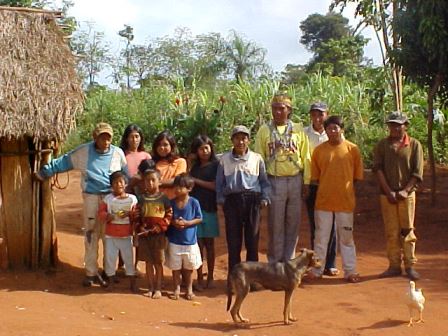Copyright © By Dr. Leesi Ebenezer Mitee
Huricompatisation Book Details
The details about Dr. Leesi Ebenezer Mitee’s upcoming book (with its companion eBook edition), Huricompatisation of Indigenous Customary Law: The New Human Rights-Based Model of Ascertainment for Adequate Local and Global Public Access (a product of his 628-page, 187,724-word innovative multidisciplinary PhD thesis), are as follows:
Book title: Huricompatisation: The Human Rights-Based Model of Ascertainment of Indigenous Customary Law for Adequate Public Access
Book author: Dr. Leesi Ebenezer Mitee, Doctor of Philosophy (PhD) with specialisation in International Human Rights Law, Legal Informatics (the application of information technology to legal processes and legal information systems), Indigenous Customary Law, and Indigenous Rights; Master of Laws (LLM); Postgraduate Professional Legal Practice Certificate (BL); Bachelor of Laws (BL); Higher National Diploma (HND) in Town & Country Planning
Number of Pages: 200 pages (pre-printing estimate)
Book formats: Print book (paperback edition); eBook or e-Book (digital or electronic edition)
Book series: The Human Right of Free Access to Public Legal Information Book Series, Volume 3
The three books in The Human Right of Free Access to Public Legal Information Book Series are as follows:
- The Human Right of Free Access to Public Legal Information: Its Concept and the Pioneering Proposal for its Universal Recognition (Volume 1)
- Innovative Web-Based Access to Global Public Legal Information: Technological Mechanisms for Optimal Findability and Management of Online Databases (Volume 2)
- Huricompatisation of Indigenous Customary Law: The New Human Rights-Based Model of Ascertainment for Adequate Local and Global Public Access (Volume 3)
Book Description

As a response to the growing global prominence of indigenous rights and the right of every person to know the laws that regulate the person’s conduct and activities, this book examines how adequate public access to the unwritten rules of indigenous customary law can be achieved in such a way that the method of providing that access also complies with the general human rights and the specific rights of indigenous communities. The theory of legal certainty provided the theoretical framework for this book, an aspect of which is the concept of ascertainment of indigenous customary law. The other specific relevant concepts are the rule of law and the doctrine of ignorance of the law is no excuse. The United Nations-endorsed human rights-based approach (HRBA) provided the conceptual framework for analysing the human-rights requirements of the model ascertainment method, while the specific requirements for adequate public access to indigenous customary law were formulated from existing literature. The findings of the study include the following: There are four existing methods of ascertainment of unwritten indigenous customary law, namely judicialization, codification, restatement, and self-statement; and those methods neither provide adequate public access to indigenous customary law nor protect the human rights and indigenous rights of the communities affected by the ascertainment of their law. To provide an alternative to the existing deficient methods of ascertainment, this book develops the human rights-compliant and public access-adequate new model of ascertainment of indigenous customary law, acronymed huricompatisation. Huricompatisation incorporates a mix of twelve relevant general human rights and specific indigenous rights into ten essential requirements for adequate public access to indigenous customary law. This book argues that huricompatisation satisfies the need of the members of indigenous communities to know the applicable rules of their indigenous customary law and that it also preserves the evolving and adaptive nature of that law. Further, huricompatisation protects their general human rights (e.g. the right to a fair trial) and their specific indigenous rights, including their omnibus right to self-determination that encompasses their right to self-governance in their internal affairs, as well as their rights to their culture and indigenous identity. Additionally, huricompatisation provides the opportunity for unprecedented free public access to indigenous customary law from communities worldwide. The United Nations, regional bodies, governments at all levels, intergovernmental and nongovernmental organisations, other policymakers who work on indigenous matters, and indigenous communities will benefit from the law-reform utility and policy relevance of this book that extends the frontiers of the right of free access to public legal information to indigenous customary law globally.
Keywords: Huricompatisation indigenous customary law ascertainment; Right of free access to public legal information; Right of public access to indigenous customary law; Customary law judicialization; Customary law codification; Customary law restatement; Customary law self-statement
Book Availability
Details on the availability of this book, Huricompatisation of Indigenous Customary Law: The Human Rights-Based Model of Ascertainment for Adequate Local and Global Public Access, will be published here as soon as the book is published, which will be in both print (hardcover and paperback) and eBook (digital or electronic) formats and distributed worldwide.
Thank you so much for visiting this webpage.
Contact
Click here to contact the author of this book, Dr. Leesi Ebenezer Mitee.
